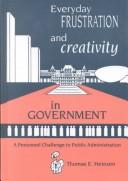| Listing 1 - 3 of 3 |
Sort by
|

ISBN: 1567500900 Year: 1994 Publisher: Norwood, N. J. Ablex Pub.
Abstract | Keywords | Export | Availability | Bookmark
 Loading...
Loading...Choose an application
- Reference Manager
- EndNote
- RefWorks (Direct export to RefWorks)

ISBN: 0226482448 1281430706 9786611430702 9780226482446 9780226482422 0226482421 9780226482415 0226482413 0226482413 0226482421 Year: 1997 Publisher: Chicago : University of Chicago Press,
Abstract | Keywords | Export | Availability | Bookmark
 Loading...
Loading...Choose an application
- Reference Manager
- EndNote
- RefWorks (Direct export to RefWorks)
Drawing on the work of Foucault and Bourdieu, David Lindenfeld illuminates the practical imagination as it was exhibited in the transformation of the political and social sciences during the changing conditions of nineteenth-century Germany. Using a wealth of information from state and university archives, private correspondence, and a survey of lecture offerings in German universities, Lindenfeld examines the original group of learned disciplines which originated in eighteenth-century Germany as a curriculum to train state officials in the administration and reform of society and which included economics, statistics, politics, public administration, finance, and state law, as well as agriculture, forestry, and mining. He explores the ways in which some systems of knowledge became extinct, and how new ones came into existence, while other migrated to different subject areas. Lindenfeld argues that these sciences of state developed a technique of deliberation on practical issues such as tax policy and welfare, that serves as a model for contemporary administrations.
Social sciences --- Public administration --- Policy sciences --- Policy-making --- Policymaking --- Public policy management --- Administration, Public --- Delivery of government services --- Government services, Delivery of --- Public management --- Public sector management --- Political science --- Administrative law --- Decentralization in government --- Local government --- Public officers --- Behavioral sciences --- Human sciences --- Sciences, Social --- Social science --- Social studies --- Civilization --- History --- Germany --- Intellectual life --- #SBIB:003.IO --- #SBIB:35H004 --- Bestuurswetenschappen: onderwijs en onderzoek --- german sciences, germany, science, 19th century, paul-michel foucault, pierre bourdieu, politics, political contexts, sociology, sociological, archival research, universities, higher education, college, private correspondence, lecture, state officials, administration, reform, economics, finance, law, legal systems, agriculture, forestry, mining, system of knowledge, deliberation, history, historical, policy, french revolution, specialization, inquiry, variation.
Book
ISBN: 1400885183 9781400885183 Year: 2017 Publisher: Princeton University Press
Abstract | Keywords | Export | Availability | Bookmark
 Loading...
Loading...Choose an application
- Reference Manager
- EndNote
- RefWorks (Direct export to RefWorks)
The politics and policies that led to America's expansion of the penal system and reduction of welfare programs In 1970's America, politicians began "getting tough" on drugs, crime, and welfare. These campaigns helped expand the nation's penal system, discredit welfare programs, and cast blame for the era's social upheaval on racialized deviants that the state was not accountable to serve or represent. Getting Tough sheds light on how this unprecedented growth of the penal system and the evisceration of the nation's welfare programs developed hand in hand. Julilly Kohler-Hausmann shows that these historical events were animated by struggles over how to interpret and respond to the inequality and disorder that crested during this period. When social movements and the slowing economy destabilized the U.S. welfare state, politicians reacted by repudiating the commitment to individual rehabilitation that had governed penal and social programs for decades. In its place, they championed strategies of punishment, surveillance, and containment. The architects of these tough strategies insisted they were necessary, given the failure of liberal social programs and the supposed pathological culture within poor African American and Latino communities. Kohler-Hausmann rejects this explanation and describes how the spectacle of enacting punitive policies convinced many Americans that social investment was counterproductive and the "underclass" could be managed only through coercion and force. Getting Tough illuminates this narrative through three legislative cases: New York's adoption of the 1973 Rockefeller drug laws, Illinois's and California's attempts to reform welfare through criminalization and work mandates, and California's passing of a 1976 sentencing law that abandoned rehabilitation as an aim of incarceration. Spanning diverse institutions and weaving together the perspectives of opponents, supporters, and targets of punitive policies, Getting Tough offers new interpretations of dramatic transformations in the modern American state.
Public welfare --- Imprisonment --- Criminal justice, Administration of --- Administration of criminal justice --- Justice, Administration of --- Crime --- Criminal law --- Criminals --- Confinement --- Incarceration --- Corrections --- Detention of persons --- Punishment --- Prison-industrial complex --- Prisons --- History --- Political aspects --- Law and legislation --- United States --- Politics and government --- 1970s America. --- 1973 drug laws. --- American lawmakers. --- California. --- Nelson Rockefeller. --- Ronald Reagan. --- U.S. welfare state. --- addicts. --- administrators. --- bureaucratic scrutiny. --- civic status. --- crime. --- criminalization. --- disorder. --- drug laws. --- drug rehabilitation. --- drug users. --- drugs. --- eligibility standards. --- fraud prosecutions. --- governing problems. --- heroin. --- inequality. --- law enforcement. --- law-and-order activists. --- law-and-order politicians. --- lawmakers. --- leftist radicals. --- legal reforms. --- low-income community. --- modern America. --- narcotics. --- penal rituals. --- penal sanctions. --- penal system. --- people of color. --- policymakers. --- political insurgency. --- political rhetoric. --- political rights. --- politicians. --- prison system. --- prisoners. --- prisons. --- punishment. --- pushers. --- rehabilitative ideal. --- rehabilitative regime. --- retribution. --- safety net. --- sentencing policy. --- social movements. --- social regulation. --- social upheaval. --- social welfare programs. --- state officials. --- state supports. --- street crime. --- surveillance. --- therapeutic regime. --- tough proposal. --- toughness imperative. --- welfare fraud. --- welfare recipients. --- welfare. --- work requirements. --- School-to-prison pipeline --- Since 1969
| Listing 1 - 3 of 3 |
Sort by
|

 Search
Search Feedback
Feedback About
About Help
Help News
News